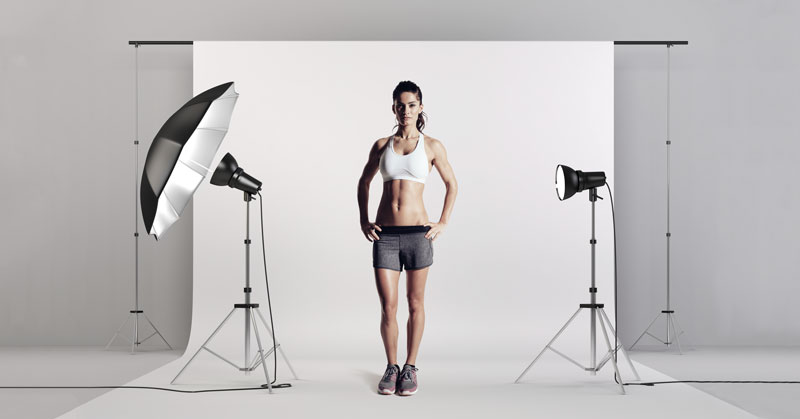
By Vickie Saunders, The Sponsorship Consultants
It is important for athletes to understand what sponsorship is and what it isn’t. It isn’t about getting something for free, that is called charity, and while it may appeal on some levels, you would be missing out on a host of benefits that sponsorship offers.
So what is Sponsorship?
Think of it as a relationship that exists to provide agreed benefits and, like any relationship, if it’s nurtured it can develop into something very valuable and long lasting. Conversely, just like any relationship, if it’s taken for granted and neglected, or there is dishonesty, then it is unlikely to grow and likely to end.
What Sponsorship Isn’t
Sponsorship is not a donation. A donation is where the benefit goes one way, with sponsorship you receive a benefit in return for giving a comparative benefit back. The opportunities and unexpected benefits of engaging in sponsorship relationships will far outweigh the short-term gain from receiving donations.
Sponsorship is not about getting something for free. Sponsorship relationships should be developed, negotiated, and strategic so that both parties receive maximum gain.
Sponsorship relationship between athlete and company should maximize gain for both parties. Share on XExpelling Some Myths about Sponsorship
There are so many misconceptions about what sponsorship is, what it isn’t, who can get it, and who can’t. They are just myths.
MYTH #1 THERE’S NOT ENOUGH
The biggest myth is that there isn’t much sponsorship around because of the ‘current economic climate’. There is an ABUNDANCE of sponsorship available; it’s all about connecting with the right companies in the right way, and being able to offer valuable return on their investment.
MYTH #2 I DESERVE IT. I DON’T DESERVE IT
There are some athletes who believe that their athletic achievements automatically qualify them for being sponsored. They have a sense of entitlement and think that companies should be knocking down their door with offers and that just being a good athlete is all they need to offer their sponsors.
The reality is, even David Beckham and Usain Bolt have to do more than play football or run 100 metres. They attend media events, photo shoots, are involved in marketing campaigns, and many other activities that provide the true commercial value for their sponsors.
MYTH #3 IT’S TOO HARD TO GET
There is work involved in engaging and maintain sponsorship, but the rewards far outweigh the efforts. The key is having a plan, taking the actions and making sure you are approaching the right companies, in the right way, and offering the right things in return.
Simple things like picking up the phone rather than just sending off an email to someone you’ve never contacted before can help get the ball rolling with your potential sponsors. It’s not rocket science, and it’s not that hard!
Types of Sponsorship
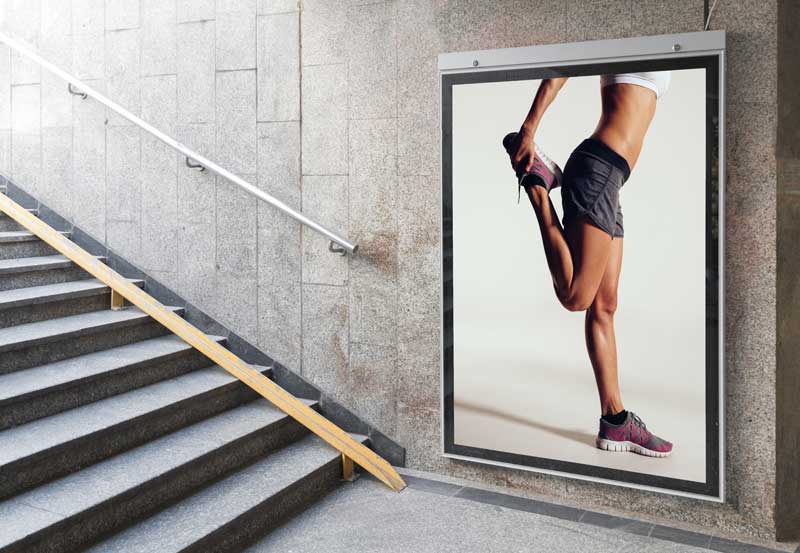
There are many types of sponsorship and despite what you may hear people saying there is more than enough to go around.
Financial – You receive payment for your engagement as a sponsored athlete, this may include product and service also!
Product – Your sponsors provide you with the products that you use in your sport or your everyday life.
Service – This can be anything from physio and massage, right through to accounting or graphic design!
Affiliate – Based on your performance on or off the sporting field, your sponsor provides you with either payment or product/service when you achieve certain targets i.e. you have a code that you can share with all your followers to make purchases with your sponsor, and you get a percentage of that.
Ambassador – You are a representative of that company or organisation (perhaps a charity), and while you may be paid, one of the greatest benefits will be a boost to your profile and network.
The Benefits of Being a Sponsored Athlete
Athletes seek sponsorship for various reasons, with the main one being to reduce the financial strain of participating in their sporting activities.
The reduction of this financial strain can mean that the athlete may be able to work reduced hours, or not at all, to focus on their training and events, or it may mean that though they continue employment, they can now set their sights on even bigger or more frequent event participation.
The great thing about being a sponsored athlete is that it’s about so much more than simply getting your costs of being an athlete covered.
The benefits of sponsorship include:
- Reducing the costs of your sport, and taking financial pressure off you and your family!
- Being able to use the products and services you want i.e. the very best equipment that’s just right for you, or getting a great coach or regular massage and physio.
- Option to reduce your work hours – and train (and recover!) more
- Financial freedom
- Ability to participate in all the events you want to and not having to choose because you can’t afford to attend them all.
- Create strong networks and opportunities!
The Unexpected Benefits of Being Sponsored
There are so many tangible benefits, but there are also some that are not so obvious but equally if not MORE valuable such as:
- You open doors to new opportunities and networks
- Your professional and personal skills will be developed
- All of the things that you offer sponsors as benefits to them actually benefit you (increased media and social media activity and increased audience)
- You will increase your own network (fans and followers) and grow your profile as an athlete
- You will find it easier to get more sponsors, as you have experience and proof that you are a great investment!
- There may be career opportunities that arise during or after your sporting ‘career.’
- On a personal level it’s incredibly exciting, confidence boosting and ironically quite humbling to be sponsored by a company who can see the true value that you offer them through your sporting and non-sporting activities.
- The stress that is alleviated for those athletes seeking substantial sponsorship (which may then mean they only need to work part-time or not at all) can have an incredible effect on their performance!
The 3 Phases of Athlete Sponsorship
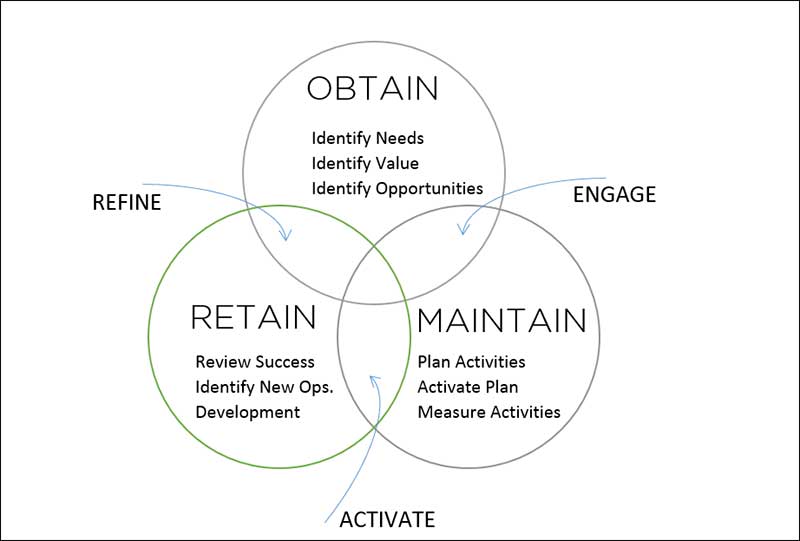
Figure 1.The three phases of athlete sponsorship.
Phase 1 OBTAIN
The initial phase is where all the groundwork is laid and requires the most effort.
It is during this phase that requirements are identified, potential sponsors are identified and researched, and sponsorship proposals are created. Once sponsorship has been engaged, we move into Phase 2.
Phase 2 MAINTAIN
Using the information generated in Phase 1, athletes will activate their relationships with their sponsors, and this will typically coincide with their competition season….so being organized and having a plan to work off is crucial!
Phase 3 RETAIN
Typically at the end of the contract term, this phase is a time to reflect, review and hopefully if all has gone well, renew the arrangement for another year.
Identifying Your Needs
During this process, you’ll be looking at what you want out of sponsorship, beyond products, services and finance. Are you looking to increase your profile as an athlete in the media?
Are you looking for partnerships with companies who share your vision about something? Perhaps you’re thinking ahead and wanting to develop your professional skills and networks for a career during and after competitive sport.
Identifying Potential Sponsors
You will be amazed at how many companies you have some kind of connection with, and chances are your potential sponsors will be ones you are already connected with.
Use the following categories to create your initial list:
• Brands and services you currently (or would like to!) use
• Companies that your friends and family are connected with
• Local business’s in your community
• Business’s that you are already a customer to…..and may not have anything to do with sport i.e. beauty products, groceries, transport etc.
• Businesses who sponsor your sport, your events, or other athletes in your sport
Research
Find out as much as you can about the companies you’ve identified as a good match, and get an understanding of what they’re about; what does their marketing activity look like, do they sponsor other athletes, do they participate in any corporate sporting events or do they have any employee health programmes?
Find out as much as you can via the internet and your existing contacts, and then get in contact with the marketing or sponsorship manager to get any other key information to ensure your proposal really hits the mark!
Creating a List of Benefits
It’s my belief and experience that your results on the sporting field have little to do with getting sponsored, and that it’s OTHER factors that make sponsorship a valuable investment for companies.
It’s social media, brand promotion, media coverage, verbal endorsement at events, having a brand ambassador and a heap of other benefits that you can offer sponsors.
Perhaps you’re good at public speaking and can offer a few hours of your time during the year, or you could offer to run a team building session for your sponsor’s staff (or to their clients!).
Social media is brilliant when done right, so look at how you can offer an increased platform for your sponsors through your existing or soon to be increased networks!
Get creative, step outside your comfort zone, and look for unique and valuable ways to give back to your sponsors!
Through your research, you should have a fairly clear idea of what the company may be looking for, so your benefits should align with this and of course should be commensurate with what you’re asking for from the company in terms of value!
Creating Sponsorship Proposals
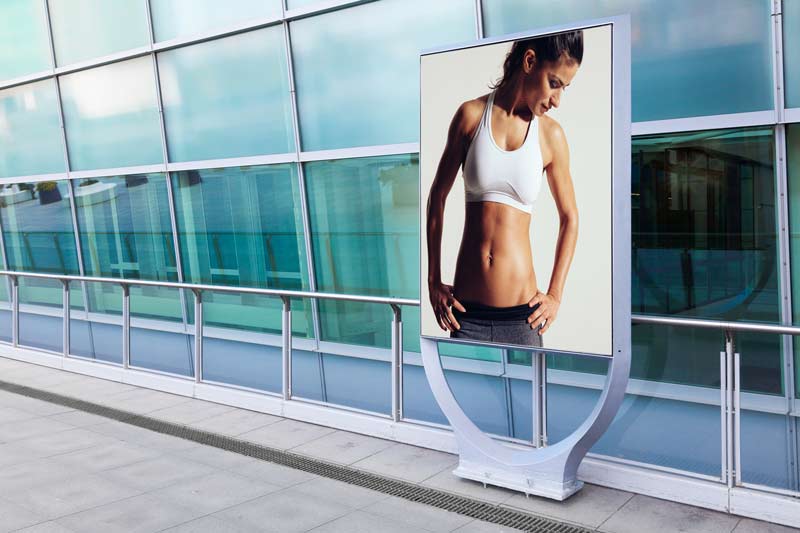
Make sure the focus is always on the company, not on you.
Be clear and concise, let them know why you are contacting them specifically and how it will benefit them to sponsor you. Outline your achievements and future plans, and paint the picture of just how awesome it will be to work together! Use great photos and make the document look fantastic, and really represent you and your style!
Be clear on what you’re asking for and what you’re offering. Make sure that you make it as concise as possible because the aim is to get them to read all of the document. Make sure you tailor each proposal for each individual sponsor!
If you’re not good at design or writing or you don’t have any killer photos of you in action, get help! Ask around, you’ve probably got people in your existing network who ARE good at this stuff and will be happy to help you!
Sending proposals
Make sure you have already spoken to your potential sponsors….face to face is optimal, over the phone is good, email is a very last resort.
Make sure they are expecting your proposal, and once you’ve sent it (usually via email) follow up with a phone call to confirm they’ve received it and to find out when they’d like to discuss it with you.
5 Do’s
- Give yourself plenty of time to engage sponsors, at least three months
- Treat sponsorship as a business relationship
- Spend time figuring out exactly what you need sponsorship for
- Research potential sponsors and only align with brands that are a good fit with you based on your needs, ambitions, and values and what you can give back to the company
- Find out what your sponsors want by asking them
5 Don’ts
- Don’t send a proposal without making contact with the company first (face to face is gold, over the phone is good, email or other social media is ok but really a last resort if phone or face to face aren’t possible).
- Make your proposals too long or too much about you – the focus should be on the sponsors and how this will benefit them
- Rush into sponsorships with company’s you know nothing about or are not aligned with your values
- Worry if some of them say no. Be thankful that they have given you a straight answer and that you are moving closer to getting a YES from another company, the RIGHT company!
- Just send your proposal documents and wait for a reply. Be proactive (but not a total stalker!) and follow up a few days after sending.
Summary
By doing all the activities in the three stages you will be setting a new benchmark for your sponsors as I can almost guarantee you that not many other athletes will be offering such a professional, valuable and well developed return on investment for their sponsors.
Please share so others may benefit.
[mashshare]


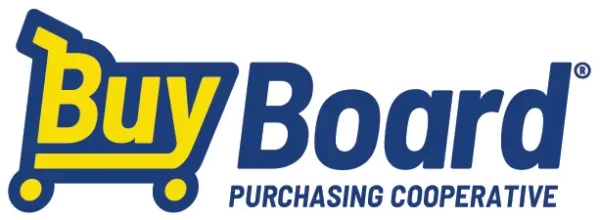
To any sponsors out there for track, my fiance chris wells-anders, is a track athlete, who has been having a hard time finding the right coach to train him, keeping up with the right supplements to get him going, and the right audience, to keep him going. Please help me to give back to him, we barely have any money to put toward major bills and we want a better lifestyle but it’s hard on us both, mostly him. And also, he has a son who he barely has money to put toward. He wants to be able to provide for his family, and he doesn’t seem that can happen, he needs help. Please Help!!!!!
Do you have the authorization in recommending us (athletes ) to a company who need an endorser of their products?
If yes, I’m with it. Please help me to get sponsorship. Thank you so much.
Thank you so much for your help! I am training for the Olympics in track and am looking for sponsors. Please check out our YouTube channel: Pulse Level Fitness LLC as I post my journey to the Olympics on our channel.
This was a very good guide for my initial stages in seeking sponsorship for my professional track and field career. I’ve been an athlete for many years and have made the decision to continue enhancing my skills to make it to the highest level possible. I’m completely new to sponsorships and how they work so this was very helpful to get myself on the road to greatness. Thanks much!
I’m back !!!!!
Stay tune for more info on me.
Thank You
Hope you will see me in the Olympic.
Ro
Please am a young African athelete
I can go far in training but am schooling in university am 18yrs I need sponsor to focus fully on my dream
Help me please
Please am a young Nigerian Athlete
am still in secondary school but I need someone to sponsor me so I will achieve my dream of becoming the 2nd usain bolt